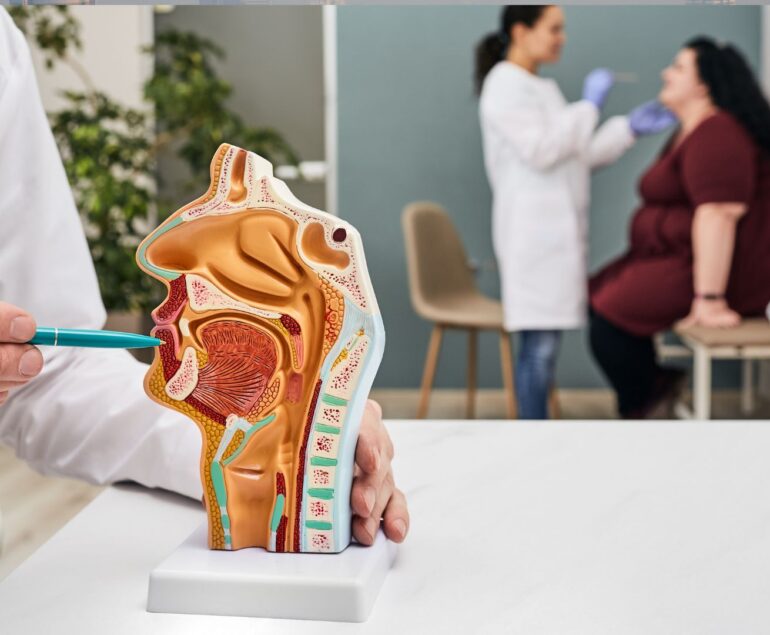Introduction
Welcome to the world of ear care, where Dr. Vivek Kumar Pathak, an experienced ENT surgeon, guides us through the intricacies of earwax management. Earwax, scientifically known as cerumen, plays a crucial role in ear health. In this comprehensive guide, we will explore the dos and don’ts of earwax management to ensure optimal ear health.
Understanding Earwax
What is earwax?
Earwax is a natural substance produced by the glands in the ear canal. It serves as a protective barrier against dust, debris, and bacteria.
Functions of earwax
Earwax moisturizes the ear canal, preventing dryness and itching. It also helps in repelling water, protecting the ears from infections.
Types of earwax
There are two primary types of earwax: wet and dry. The consistency is determined by genetics, and both types are normal and healthy.
Dos of Earwax Management
Regular cleaning methods
- Gentle cleaning with a washcloth: Wipe the external ear gently with a damp cloth to remove visible wax.
- Ear drops for softening wax: Over-the-counter ear drops can help soften the wax, making it easier to remove.
Seeking professional help
- Visiting an ENT specialist: Regular check-ups with an ENT specialist ensure proper ear health.
- Professional ear cleaning procedures: Professional cleaning by a trained specialist can be beneficial for removing stubborn earwax.
Don’ts of Earwax Management
- Avoiding cotton swabs: Cotton swabs may push wax deeper into the ear canal, leading to blockages and potential damage.
- Steer clear of ear candling: Ear candling is not recommended, as it can cause injury and does not effectively remove earwax.
- Overuse of ear drops: Excessive use of ear drops can disrupt the natural balance of earwax production.
Common Earwax Issues
Impact of excessive earwax
Accumulation of too much earwax can lead to hearing problems, dizziness, and discomfort.
Symptoms of earwax blockage
Watch out for symptoms like earache, ringing in the ears, and partial hearing loss, indicating a possible earwax blockage.
Potential complications if untreated
Ignoring earwax issues may result in infections, inflammation, and even damage to the eardrum.
Home Remedies for Earwax Removal
Warm oil drops
Applying warm olive or mineral oil drops can help soften earwax, facilitating its natural expulsion.
Hydrogen peroxide solution
A mixture of hydrogen peroxide and water can aid in breaking down stubborn earwax.
Over-the-counter ear drops
Use OTC ear drops specifically designed for wax removal, following the instructions carefully.
Earwax Removal Techniques
Irrigation method
Flushing the ear with warm water using a bulb syringe can effectively remove softened earwax.
Microsuction technique
ENT specialists may use microsuction to gently vacuum out stubborn earwax without causing harm.
When to Consult a Professional
Persistent symptoms
If symptoms persist despite home remedies, seek professional help promptly.
Hearing loss concerns
Any sudden or gradual hearing loss should be addressed by an ENT specialist.
Severe pain or discomfort
Unusual pain or discomfort in the ears requires immediate attention from a medical professional.
Children and Earwax Management
Special considerations for kids
Parents should be cautious when dealing with children’s earwax and seek professional advice if needed.
Safe practices for parents
Maintain good hygiene practices for children, avoiding the use of cotton swabs in their ears.
Earwax and Hearing Aids
Impact of earwax on hearing aids
Regular cleaning of hearing aids is essential to prevent earwax buildup and maintain optimal performance.
Cleaning hearing aids effectively
Follow the manufacturer’s guidelines for cleaning hearing aids and consult an audiologist if issues arise.
Lifestyle Tips for Earwax Prevention
Dietary considerations
A balanced diet rich in omega-3 fatty acids can contribute to overall ear health.
Hygiene practices
Regular cleaning of the outer ear and avoiding excessive moisture can prevent earwax-related issues.
Debunking Common Myths
Dispelling misconceptions about earwax
Separate facts from fiction to make informed decisions about ear care.
Separating facts from fiction
Understanding the truth about earwax dispels myths and promotes proper ear care practices.
Personal Experience: Dr. Vivek Kumar Pathak
Insights from an ENT surgeon
Dr. Pathak shares valuable insights from his experience, addressing common earwax issues and solutions.
Real-life cases and solutions
Explore real-life cases treated by Dr. Pathak, highlighting the importance of proactive earwax management.
Conclusion
In conclusion, proper earwax management is crucial for maintaining optimal ear health. By following the dos and avoiding the don’ts, you can ensure a lifetime of clear hearing and a healthy auditory system.
FAQs
- How often should I clean my ears? It’s advisable to clean your ears as needed, avoiding excessive cleaning that can disrupt the natural wax balance.
- Are ear candles effective for earwax removal? No, ear candles are not recommended, as they can cause injury and have no proven benefits.
- Can earwax removal be painful? When done correctly, earwax removal is not painful, but if you experience discomfort, consult a professional.
- Are there any natural remedies for earwax removal? Yes, warm oil drops and hydrogen peroxide solutions are effective natural remedies for earwax removal.
- Is it normal for children to produce more earwax? Children may produce more earwax, but it’s essential to monitor and manage it to prevent issues.
About Author:
Dr. Vivek Kumar Pathak: Renowned ENT Surgeon, Senior Professor, and Founder.
Dr. Pathak, ENT surgeon at Kailash Hospital, Senior ENT Professor at Sharda University, and founder of Entegrity Care, brings expertise and innovation to healthcare. Discover the visionary behind Doxtreat Healthcare, shaping the future of ENT care.
Website www.drvivekpathak.com
Call +917838450942
WhatsApp +91 78384 50942
Book an appointment with Dr. Vivek kumar Pathak by filling the form.


